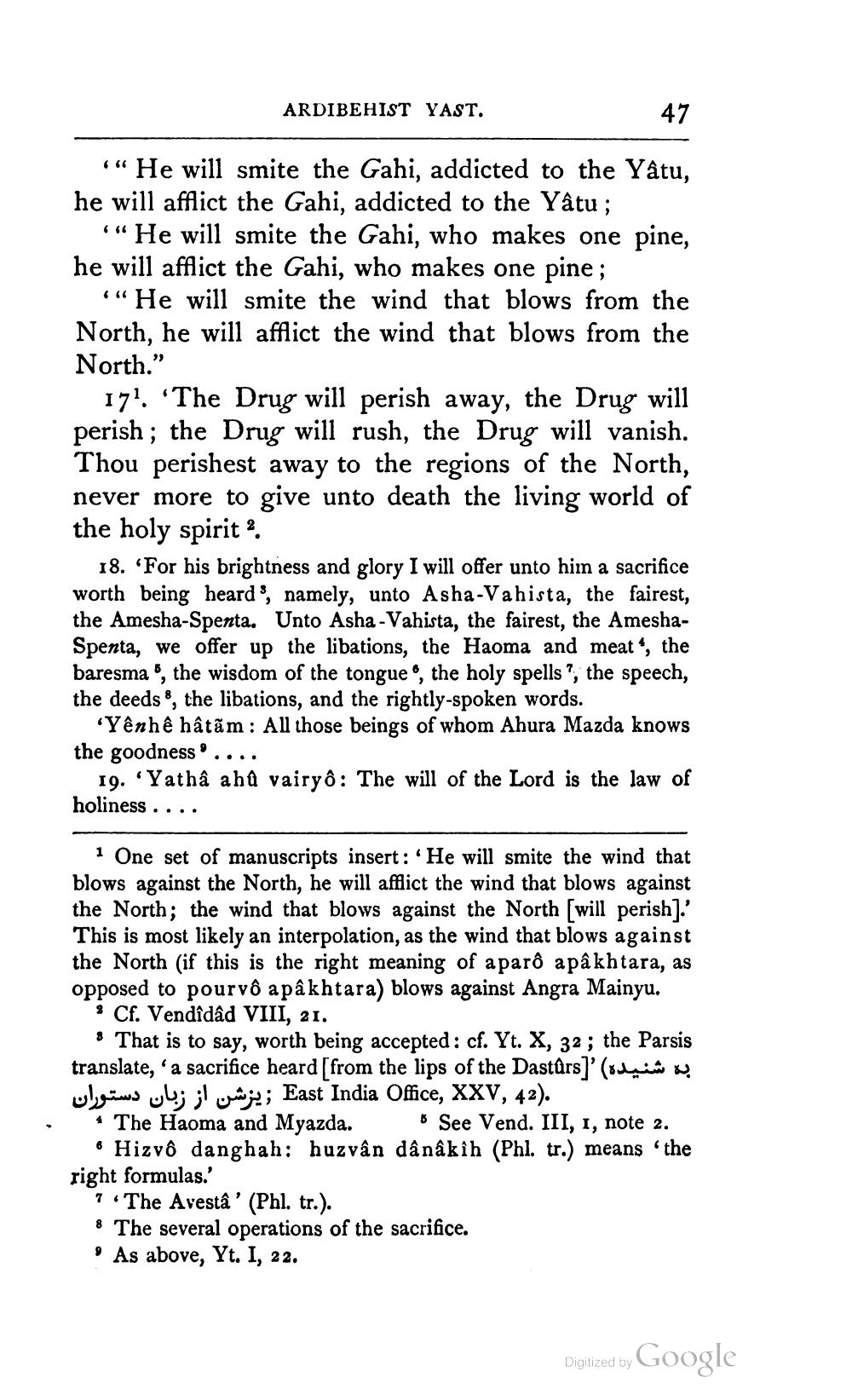________________
ARDIBEHIST YAST.
47
"" He will smite the Gahi, addicted to the Yâtu, he will afflict the Gahi, addicted to the Yâtu ;
""He will smite the Gahi, who makes one pine, he will afflict the Gahi, who makes one pine ;
""He will smite the wind that blows from the North, he will afflict the wind that blows from the North.”
171. 'The Drug will perish away, the Drug will perish; the Drug will rush, the Drug will vanish. Thou perishest away to the regions of the North, never more to give unto death the living world of the holy spirit .
18. 'For his brightness and glory I will offer unto him a sacrifice worth being heard, namely, unto Asha-Vahista, the fairest, the Amesha-Spenta. Unto Asha-Vahista, the fairest, the AmeshaSpenta, we offer up the libations, the Haoma and meat", the baresma , the wisdom of the tongue, the holy spells ?, the speech, the deeds, the libations, and the rightly-spoken words.
“Yênhê hâtãm: All those beings of whom Ahura Mazda knows the goodness'....
19. “Yathâ ahû vairyô: The will of the Lord is the law of holiness....
1 One set of manuscripts insert: 'He will smite the wind that blows against the North, he will afflict the wind that blows against the North; the wind that blows against the North (will perish].' This is most likely an interpolation, as the wind that blows against the North (if this is the right meaning of aparô apâkhtara, as opposed to pourvô apâkhtara) blows against Angra Mainyu. 9 Cf. Vendîdad VIII, 21.
That is to say, worth being accepted: cf. Yt. X, 32; the Parsis translate, a sacrifice heard [from the lips of the Dastûrs)'( uleiud ulo; il www; East India Office, XXV, 42).
* The Haoma and Myazda. See Vend. III, 1, note 2.
o Hizvô danghah: huzvân dânâkîh (Phl. tr.) means "the right formulas.
7 The Avesta' (Phl. tr.). 8 The several operations of the sacrifice. • As above, Yt. I, 22.
Digitized by Google




